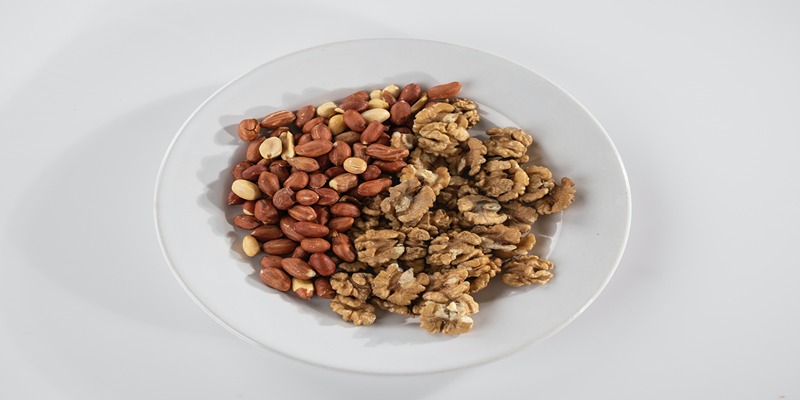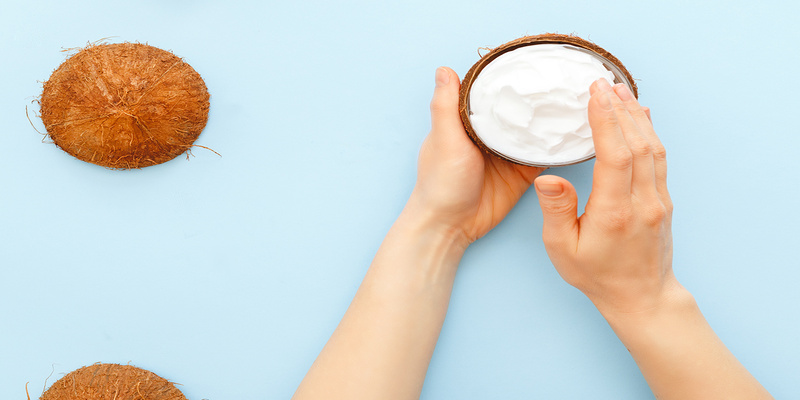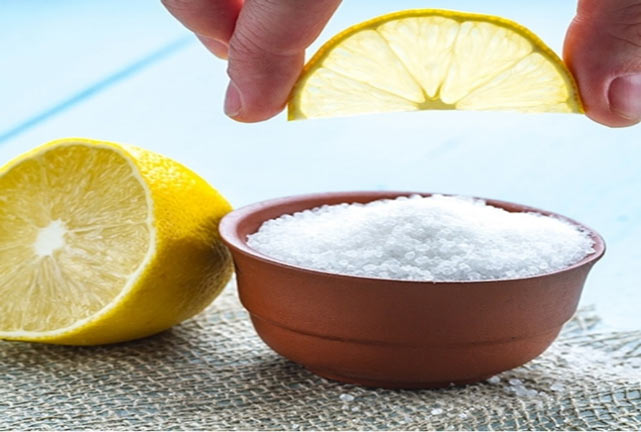What Is Citric Acid
Feb 13, 2024 By Nancy Miller
Are you wondering what citric acid is and how it's used daily? You may be familiar with this acidic compound, but do you understand its complex chemical structure or the multiple purposes it serves?
Since its discovery by a chemist in 1784, citric acid has been an integral ingredient in many foods, drinks, and household items.
In this blog post, we'll deeply dive into what exactly citric acid is, why it's so popularly used today, and show how versatile an ingredient it can be!
What is Citric Acid, and what are its properties
Citric acid is a naturally-occurring organic compound used in many food and beverage products. It's found in citrus fruits such as oranges, lemons, limes, and grapefruits and has the molecular formula of C6H8O7. The sour taste of citric acid comes from its acidic nature; it has a pH of around 3, which is considered very acidic.
Citric acid is a popular food additive because it adds flavor, helps preserve the product, and acts as an antioxidant. It's often used as a flavor enhancer in candy, carbonated beverages, jams, and sauces. As an antioxidant, citric acid can also help preserve a product's shelf life. It can also act as an acidifier in some products, like baking powder and bread, to react with baking soda for a desired reaction.
Citric acid is also used around the home; it's often used in cleaning supplies and cosmetics due to its antibacterial and antifungal properties. Moreover, it's used in beauty products like facial cleansers and exfoliants because of its ability to help remove dead skin cells.
Uses of Citric Acid in Everyday Life
In terms of everyday use, citric acid can be found in many products. It's commonly used to preserve canned and frozen fruits, vegetables, and sauces. It's also found in many store-bought juices as a preservative and for flavor enhancement. In addition, it's an essential ingredient in household cleaners due to its antibacterial and antifungal properties.
Citric acid is also an ingredient in many pharmaceuticals and over-the-counter drugs, such as pain relievers, antihistamines, and antacids. It's even used in some food packaging materials to help protect against microorganism growth.
Benefits of Using Citric Acid
1. Flavor Enhancer:
Citric acid is a popular food additive because it adds flavor and enhances the taste of many products.
2. Preservative:
It helps preserve canned and frozen fruits, vegetables, sauces, and other food items while increasing their shelf life.
3. Antioxidant:
As an antioxidant, citric acid can help protect the product from oxidation and other environmental factors.
4. Acidifier:
Citric acid is used as an acidifier in some products like baking powder and bread to react with baking soda for a desired reaction.
5. Antibacterial & Antifungal:
It helps clean, disinfect, and protect against bacterial and fungal growth in household cleaners.
6. Facial Cleanser:
Citric acid is a natural exfoliant that can help remove dead skin cells in beauty products like facial cleansers.
7. Pharmaceuticals/Drugs:
Citric acid is an ingredient in many pharmaceuticals and over-the-counter drugs, such as pain relievers, antihistamines, and antacids.
8. Food Packaging:
Citric acid can be used in food packaging materials to help protect against microorganism growth.
9. Natural Colorant:
Citric acid can be used as a natural colorant in some food products.
10. Sweetener:
Citric acid can also reduce the sugar content of food items while still achieving the desired sweetness.
Properly Handling and Storing Citric Acid
Citric acid should be stored in a cool, dry place and away from strong light or heat sources. It's best to store citric acid in airtight containers at room temperature. Additionally, it should not come into contact with metal surfaces as this can cause contamination and oxidation.
From its discovery by a chemist in 1784 to its everyday use, citric acid has proven a valuable and versatile ingredient. Its acidic nature makes it an excellent flavor enhancer, preservative, antioxidant, and acidified.
Not only that but it's used in household cleaners and beauty products to help clean and protect against bacterial or fungal growth. With proper handling and storage, citric acid can be enjoyed in many of our favorite foods, drinks, and products.
Different Types of Citric Acid Products are Available
1. Citric Acid Powder:
Used for preserving and flavoring foods, as well as for creating bath bombs and other DIY products.
2. Citric Acid Crystals:
Also used for preserving and flavoring foods, but in a crystallized form that dissolves easily in liquid.
3. Citric Acid Anhydrous:
An anhydrous version of citric acid is used to preserve and flavor foods and make jams and jellies.
4. Citric Acid Monohydrate:
A crystallized form of citric acid that is best for creating bath bombs and other DIY products due to its finer texture.
5. Citric Acid Concentrate:
A highly concentrated version of citric acid is used mainly for cleaning and disinfecting surfaces.
How to Integrate Citric Acid into Your Home Cleaning Routine
Citric acid is a great natural cleaning solution for your home. It can clean and disinfect surfaces, remove hard water stains, descale kettles and coffee makers, and even unclog drains.
To use citric acid for cleaning, mix one part of the concentrate with one part of water and apply it to the affected area. Allow it to sit for 10-15 minutes before rinsing off with warm water. You can also add a few drops of essential oil for an extra clean, fresh scent!
FAQs
Q. What is citric acid used for?
A. Citric acid has many uses in our everyday lives, from food and drink production to industrial processes. It's commonly added to food and drinks to give them a sour flavor, help preserve them by preventing bacteria growth and act as an emulsifier that binds ingredients together. In industry, it's used as a pH regulator in cosmetics and cleaning agents, an antioxidant and chelating agent in medicine, and even an electrolyte additive in batteries.
Q. Is citric acid bad for you?
A. Generally speaking, no! Citric acid is generally considered safe when added to foods in small amounts. Too much consumption of citric acid can cause stomach upset or irritation, but this is highly unlikely given its low concentration in many commercial products. Furthermore, citric acid is considered non-toxic and biodegradable, making it also safe for the environment.
Q. Does citric acid contain Vitamin C?
A. Unfortunately, no. While citric acid is found in many citrus fruits like lemons and oranges, it does not contain any Vitamin C. You'll have to consume the actual fruit to get your daily dose of Vitamin C!
Conclusion
Citric acid is the perfect ingredient whether you're looking to add a bit of tartness to your food, preserve it for longer, or add an electrolyte to a battery. With its versatile uses and non-toxic properties, it's no wonder why this acidic compound has been such a popular choice for centuries. Now that you know more about citric acid and its use, you can take advantage of its many benefits in your everyday life.

Air Pollution's Effect on Nose and Throat Bacteria

How do you get gut flora?

Mastering the Wall Sit: Methods, Advantages, and Variations

Exploring Prime Health Benefits of Swimming Regularly

Top 8 Salicylic Acid Face Washes for Dry Skin

How to Get Rid of Hives: 9 Natural Remedies You Must Try

Retinol: The Truth Behind 5 Common Myths




